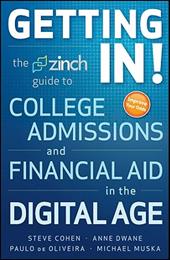 Students who effectively use social media create an advantage for themselves with colleges and in the future job market. They can digitally network with professors, alumni, and fellow students before, during, and after college. Every student should invest some time in building their online presence. The days of MySpace are over, though, and your social profiles speak volumes to anyone who finds them. You never know if a college admissions rep, recruiter or employer will Google you before offering you an opportunity. For this reason, a professional filter should always be applied.
Students who effectively use social media create an advantage for themselves with colleges and in the future job market. They can digitally network with professors, alumni, and fellow students before, during, and after college. Every student should invest some time in building their online presence. The days of MySpace are over, though, and your social profiles speak volumes to anyone who finds them. You never know if a college admissions rep, recruiter or employer will Google you before offering you an opportunity. For this reason, a professional filter should always be applied.
Here are my top five tips for college-bound teens and college students jumping into the social media river.
- Try new things. Facebook and Twitter are the basics. Consider expanding your reach by signing up for accounts on LinkedIn, Tumblr, or any other platform that intrigues you. And if you get your hands on a Google+ invitation, give it a test drive.
- Mind your audience. If you are using your social media for professional networking, then remember that anyone (uncle, co-worker, teacher, etc.) can find what you are saying. (Everyone from my grandmother to my boss can see my tweets.) Even if you “protect your tweets” or have really tight Facebook privacy settings, nothing is private. Anyone can take a screenshot of anything they see on Facebook, or retweet you into the twittersphere for all to see. There have been countless examples of people losing their jobs or even being denied admission because of inappropriate posts on social networks. Make sure you’re not one of them.
- Don’t be afraid to say “hello!” Social media has created the world’s largest networking event. Feel free to offer comments, ask questions, and challenge opinions. Never lurk in the corner.
- Speak clearly and carefully. Avoid spelling and grammar errors; watch out for foul language. If you want to be taken seriously, make your posts reader-friendly.
- Leverage your presence. If you’ve invested time in building your online influence, then make sure people know it. Put links to your social profiles on your resume, or consider building a personal website. Whatever your major or intended major, be it Dance, Sociology, or Marketing, your digital presence will set you apart.
********
Adam Britten is a recent graduate of Syracuse University, where he worked as a member of the school’s social media team. In the fall, he’ll be pursuing a Master of Digital Marketing. He maintains the blog www.genYspot.com.









